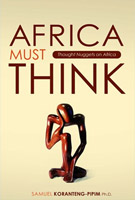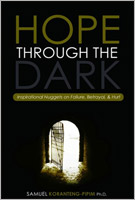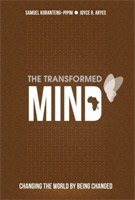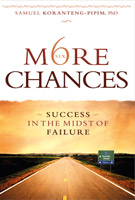The African Lion: A Tribute to Nelson Mandela
[NOTE: Our EAGLESonline team was in Zimbabwe for an "Africa Must Think" public lecture series when Nelson Mandela died on the night of December 5, 2013. The statement below was issued on December 6, 2013 during a media reception held in our honor by the Zimbabwe Minister of Tourism & Hospitality. --Samuel Koranteng-Pipim].
Thursday night, December 5, 2013, was supposed to have marked the conclusion of our “Africa Must Think” public lecture series at the prestigious Harare International Conference Center in Zimbabwe. The message that night, titled “The African Chicken,” was prefaced by spotlighting the courageous leadership of Dr. Kwame Nkrumah which was not appreciated until after his death and which stands in bold contrast to the “chicken” leadership that is all too common today. The presentation challenged Africans that, much more than ever before, failure is not an option, and it ought not be final.
The night’s presentation, “The African Chicken,” followed earlier ones on “The African Elephant,”“The African Eagle,” and “The African Gold,” metaphors used to describe Africa and the African condition. But the death of Nelson Mandela after the meetings were over gave rise to popular demand for the scheduling of one additional lecture the next day under the title “The African Lion.”
As if the organizers of the "Africa Must Think" lecture series were aware of the impending death of Mandela that very Thursday night of December 5, they ended the meeting on a rather somber note, calling for the rise of a new breed of young, courageous, and visionary African leaders. The audience was introduced to the selfless sacrifice of the five Zim Boys and five Zim Girls who braved all odds to put together the “Africa Must Think” lecture series in Zimbabwe. Known as the Catalytic Concepts Group, the Coordinator of the CatCon group ended his "thank you" remarks with the pledge: “We will empty ourselves that we might die full.”
Unbeknownst to them and us, that very night of December 5, the baton of “emptied lives and fullness at death” was floating down slowly from across the miles, beyond their borders, from a place in neighboring South Africa, searching hungrily for new hands that will grasp the baton. In the last throes of life, the legendary icon, Mandela, was exhaling breath to fan the dreams of many young Africans who are unclear about the future paths of their nations, unsure about their own roles in charting those paths, and dissatisfied with the Africa that currently is versus the Africa that ought to be.
The above challenge is no doubt a daunting prospect for any idealistic mind confronted with the vastness of the 54 countries of the African continent, and the unnumbered in diaspora. But Mandela changed Africa, by focusing on the problems in his homeland of South Africa. His critical role, excruciating sacrifice, unexpected, unparalleled forgiveness, and willing surrender of self for the embrace of the greater good are testimonials that one person can make a difference.
He was born in a village, cloistered in the noisiness of clanhood, relatively unknown at birth, insignificant like other boys his age in the phases of infanthood and childhood. By early adulthood, the mark of significance was distinct on him,though still hazy. From then on, the steps towards stardom were sure and firmer, though winding. And through the path of prison for more than a quarter of a century, all the inherent qualities in him became honed to stark brilliance. He emerged from that dark hole a legend. He was a light to the world, and in his demise leaves us now to be torchbearers of the light he bore,the brilliance of which lit the path of individuals, communities, nations, and the entire world. He makes recommendations for our generation, and provides inspiration for the unborn future.
Mandela lived long and well. He was one not afraid to fight, and not unintelligent to lay down arms. But whether bearing arms of liberation or preaching peace and reconciliation, he never surrendered his resolve nor conscience to the dictates or domination of anyone or any power. And even in death, he redefines for us the world as we know it, breaking molds and barriers as they have been formed, and challenging us to live for causes higher than our frail being will normally conceive, or naturally adopt.
He is known to have inspired millions. He will be remembered for having gifted us with words that will transcend the spectrum of time, and remain of relevance to all classes and races. But, let it be remembered that, like Nkrumah, Mandela's vision for his country was not always appreciated at the start. Though initially branded and vilified, he forged ahead, uninhibited by the lack of applause, and the misunderstanding and misrepresentation that often attends the painful work of visionaries.
How easy it is to honor the heroes of yesteryears from our safe harbors today! How comfortable it is to marry cowards than to be widows of principled nonconformists! And how secure it is to be sheltered in the shade of apathy than to be burned by the battle for right.
Mandela was an eagle, not a chicken. And he leaves us comforted, having given the best of his energy, vigor, intellect, courage, and compassion to the cause of Africa’s liberation and development. He ran fearlessly 95km of a race that is not defined by distance, but by the accomplishment of bold causes that will place Africa in its rightful place in the world. He escaped assassination and execution by forces too grand to be natural, and too divine to be human. Unlike many of Africa’s patriots of liberation, he lived and died at a ripe, old age of 95, having spent and been spent to make Africa and the world better than they were at his birth. He died, knowing he had lit the candle for every Africa who understands the cause he stood for, and shares the burden to live and die for the good of a better world.
Mandela is dead, but his vision of a free, united, multi-racial, and democratic South Africa—nay a continental Africa—shines on. Throughout his life, the clarion call that Africa Must Think was loudly amplified by voice and pen, and courageously demonstrated by his selfless sacrifice. Africa Must Think is a provocative declaration that we need “eagle” leaders today,not “chicken” leaders. The journey to that end begins with the step of critical thinking, which Nkrumah again prescribes poignantly as “thinking as men of action, and acting as men of thought.”
Thursday night was to have been the last day of the "Africa Must Think" lectures in Harare, Zimbabwe. But following the death of Mandela that night of December 5, 2013, and by popular demand, another meeting got scheduled for the next day, Friday the 6th of December. The message that night was titled “The African Lion” --a title that was inspired by the Ghanaian proverb: “An army of sheep led by a lion can defeat an army of lions led by a sheep.” The lecture that day focused on transformative leadership.
An African lion, Nelson Mandela, has been felled by death. Our hearts are heavy, but we are not without hope. The pride of lions is full and the African flock of sheep will not be defeated by marauding lions from other prides.
--Samuel Koranteng-Pipim, PhD
December 6, 2013
_____________
Dr. Samuel Koranteng-Pipim is the Director of EAGLESonline (www.EAGLESonline.org). He and the EAGLEsonline team were in Harare, Zimbabwe, conducting an “Africa Must Think” lecture series when Nelson Mandela died. The lecture series was hosted by the Catalytic Concepts Group, a young professionals' organization in Zimbabwe. The above statement was issued on December 6, 2013 during a media reception hosted by the Zimbabwe Minister of Tourism & Hospitality in honor of Dr. Pipim and the EAGLESonline team.









